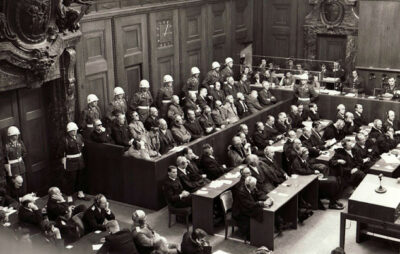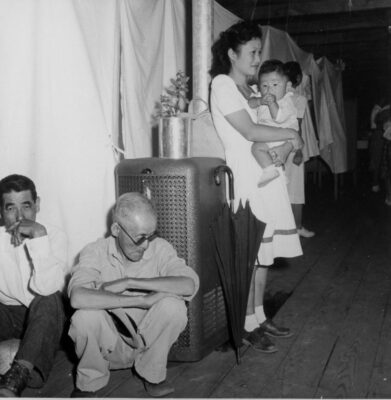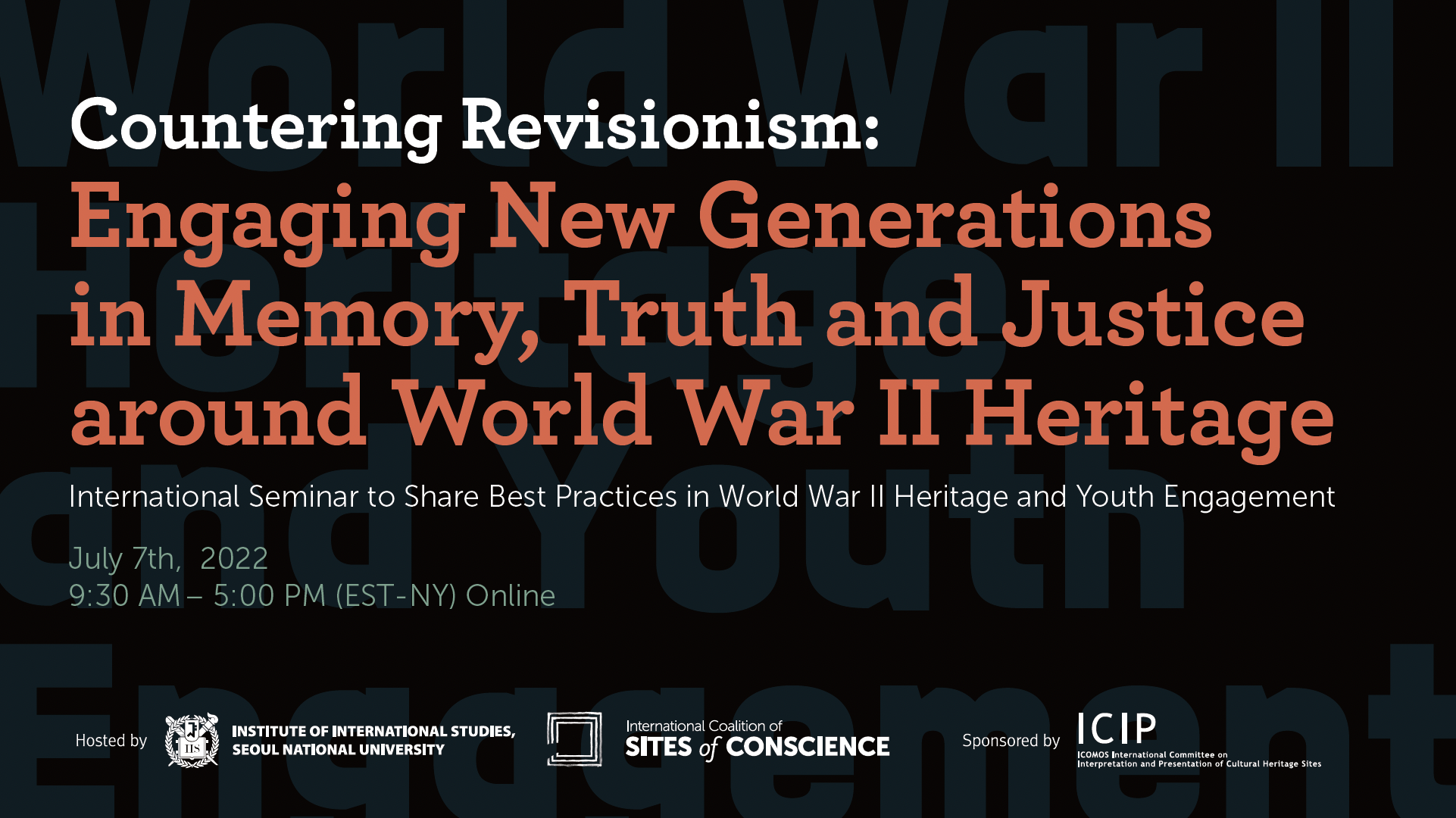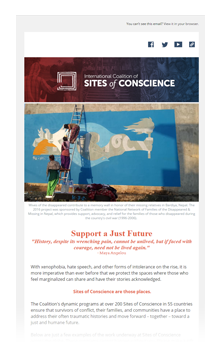International Seminar to Share Best Practices in
World War II Heritage and Youth Engagement
Thursday, July 7th, 2022
9:30 am in New York I 3:30 pm in Berlin
7:30 pm in Dhaka I 10:30 pm in Seoul
The event was live streamed and is accessible to all HERE.

In recent years, aided by new media and communication technologies, challenges to conventional understandings of World War II narratives at heritage sites have emerged, some of which include underrepresented voices and experiences related to the war that can enrich our understanding of this history, as well as others that manipulate historical facts and spread disinformation that perpetuates bias and discrimination.
Under these circumstances, Sites of Conscience and other cultural and heritage sites are perfectly positioned to spark community dialogue that amplifies marginalized voices, assesses the damaging strands of revisionism, and promotes truth-telling – leveraging the lessons of the past to foster free, just and democratic societies. By recognizing all victims of the war and engendering compassion and new understandings of shared values across diverse audiences, these sites contribute to a deeper understanding of World War II and its contemporary legacies.
To highlight best practices and deepen the role of Sites of Conscience and heritage sites in the promotion of more inclusive narratives and the countering of revisionist narratives of World War II, the International Coalition of Sites of Conscience and the Institute of International Studies at Seoul National University hosted an international conference at the Rubin Museum of Art on July 7, 2022.

The day-long event featured presentations by representatives of Sites of Conscience and other cultural and heritage sites that shared underrepresented narratives related to WWII, offered strategies to promote more inclusive histories for future generations, and provided tools to counter historical revisionism. In addition, a roundtable discussion explored the importance of war heritage, the power of memory, and the ways that youth can take leadership roles in continuing these vital conversations. A video from Sites of Conscience around the world shared reflections from youth about the role these heritage and memory sites can play in countering revisionism. That video can be viewed here.
For more information, including the day’s agenda, click here.


